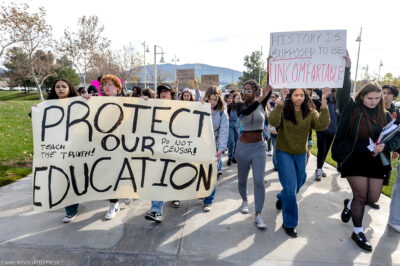Bio
Leah Watson is a Senior Staff Attorney with the ACLU’s Racial Justice Program, where she focuses on classroom censorship, the attack on DEI, the criminalization of homelessness, bias in policing, and racial health disparities during the Covid-19 pandemic. She authored “The Anti-‘Critical Race Theory’ Campaign: Classroom Censorship and Racial Backlash by Another Name” in the Harvard Civil Rights-Civil Liberties Law Review. Previously, Leah was Senior Counsel in the Criminal Justice Project at the Lawyers’ Committee for Civil Rights Under Law, where she led litigation challenging debtors’ prisons and excessive fines and fees practices in Arkansas and Oklahoma. Prior to joining the Lawyers’ Committee, she was a Senior Associate at Willkie Farr & Gallagher LLP and an Associate at Baker Hostetler LLP. Leah led cross-border investigations in one of the top ten largest Foreign Corrupt Practices Act settlements. She earned her J.D. from Harvard Law School. Prior to law school, she taught high school in Atlanta, Georgia through Teach for America. Leah earned her B.A. magna cum laude in Communication Studies and Sociology from Vanderbilt University.
Featured work

Feb 14, 2024
Anti-DEI Efforts Are the Latest Attack on Racial Equity and Free Speech

Sep 7, 2023
What the Fight Against Classroom Censorship is Really About

Nov 29, 2022
Lessons Learned from Our Classroom Censorship Win Against Florida’s Stop W.O.K.E. Act

Sep 8, 2022
This Podcast Could Be Banned in Florida Schools

Nov 19, 2021
Kyle Rittenhouse Didn’t Act Alone: Law Enforcement Must Be Held Accountable

Mar 1, 2021
To Combat Inequitable Vaccine Access, Look to the Numbers

